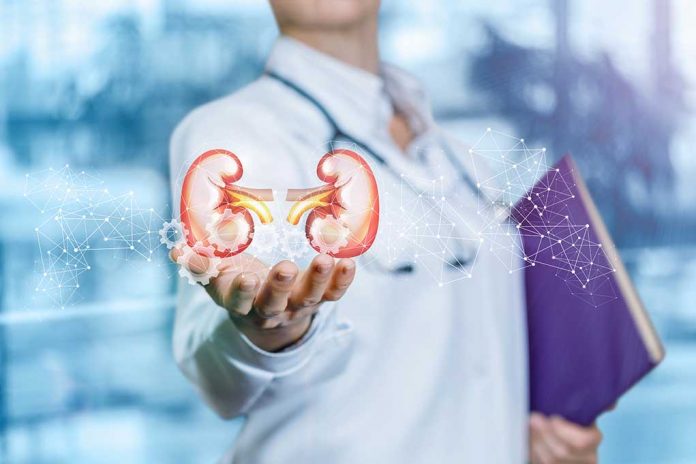
[ALERT] 10 Signs of Kidney Disease Everyone Should Know for Early Detection
(AscendHealthy.com) – According to the CDC, about 15% of the US adult population suffers from chronic kidney disease — and up to 90% of those aren’t even aware they have a problem. Because many of the symptoms can seem vague or may occur due to other causes, we might not see the signs unless we’re looking for them.
Chronic kidney disease can occur for multiple reasons, but early detection is important. Here’s what everyone should know.
Knowing the Signs
Symptoms of chronic kidney disease can manifest differently depending on the individual, so not everyone will present in the same way. Check out these 10 possible signs to watch out for:
- Unusual fatigue can result from inefficient kidney filtration, leading to more impurities in the blood. It can also be a symptom of anemia, which can occur as a complication of kidney disease.
- Difficulties sleeping are common with kidney disease. Toxin accumulation in the blood can make falling asleep difficult, and many chronic sufferers also suffer from sleep apnea.
- Changes in urine can occur in a few different ways. First, the need to go often increases, especially at night. Color and consistency may also change and reflect the presence of blood and protein, which may make urine dark or foamy.
- Edema is also a common symptom. Loss of protein in the urine often results in puffiness around the eyes, and increased sodium retention can lead to swelling in the legs, feet and hands.
- Lack of appetite can result from toxins building up in the system. Patients may also experience nausea and/or vomiting.
- Muscle cramping occurs when electrolytes fall out of balance, another side effect of poor kidney filtration.
- Feeling cold all the time can be an effect of anemia, which is common in chronic kidney disease.
- Shortness of breath can also occur with anemia. In addition, edema can sometimes affect the lungs, making breathing difficult.
- Foul breath occurs when the buildup of toxins permeates into the breath. The smell might seem similar to that of urine, or it may have a fishy quality.
- Itchy skin can result from imbalances of minerals and nutrients due to poor kidney function and may indicate metabolic changes to the bones.
Other health issues can also cause many of the above symptoms, but only a doctor can rule out alternative causes. Make sure to address these and other health concerns as they arise.
Risk Factors
Numerous health issues can lead to chronic kidney disease. According to Mayo Clinic, diabetes and high blood pressure are common culprits. Other possible causes include chronic infections and conditions that specifically target the kidneys, such as glomerulonephritis and polycystic kidney disease.
People of African, Native-American or Asian descent should be especially watchful, as should anyone with a family history of kidney disease. Smoking, obesity, advancing age and abnormal kidney shape can increase the chances of developing this condition. Keep in mind that anyone can experience kidney disease — even if they have no other risk factors.
Diagnosis and Treatment
Blood and urine tests can usually detect when there’s a problem. Primary care physicians will check glomerular filtration rate (GFR) and blood creatinine to determine how well the kidneys are functioning. Urine tests can measure for hematuria (blood in the urine) and proteinuria (protein in the urine). If kidney disease is suspected, imaging or kidney biopsy may be necessary to determine the cause.
Treatment options often depend on the diagnosis, but in many cases, the earlier the problem is caught, the more manageable the condition is likely to be. In some cases, chronic kidney disease may progress to end-stage renal failure, which requires dialysis or transplant.
Chronic kidney disease is more common than most of us realize, and identifying it isn’t always easy. Know the signs and stay alert to any changes that could indicate a problem. In many cases, the right treatment strategy can prolong both kidney functioning and quality of life.
~Here’s to Your Healthy Ascension
Copyright 2022, AscendHealthy.com




















